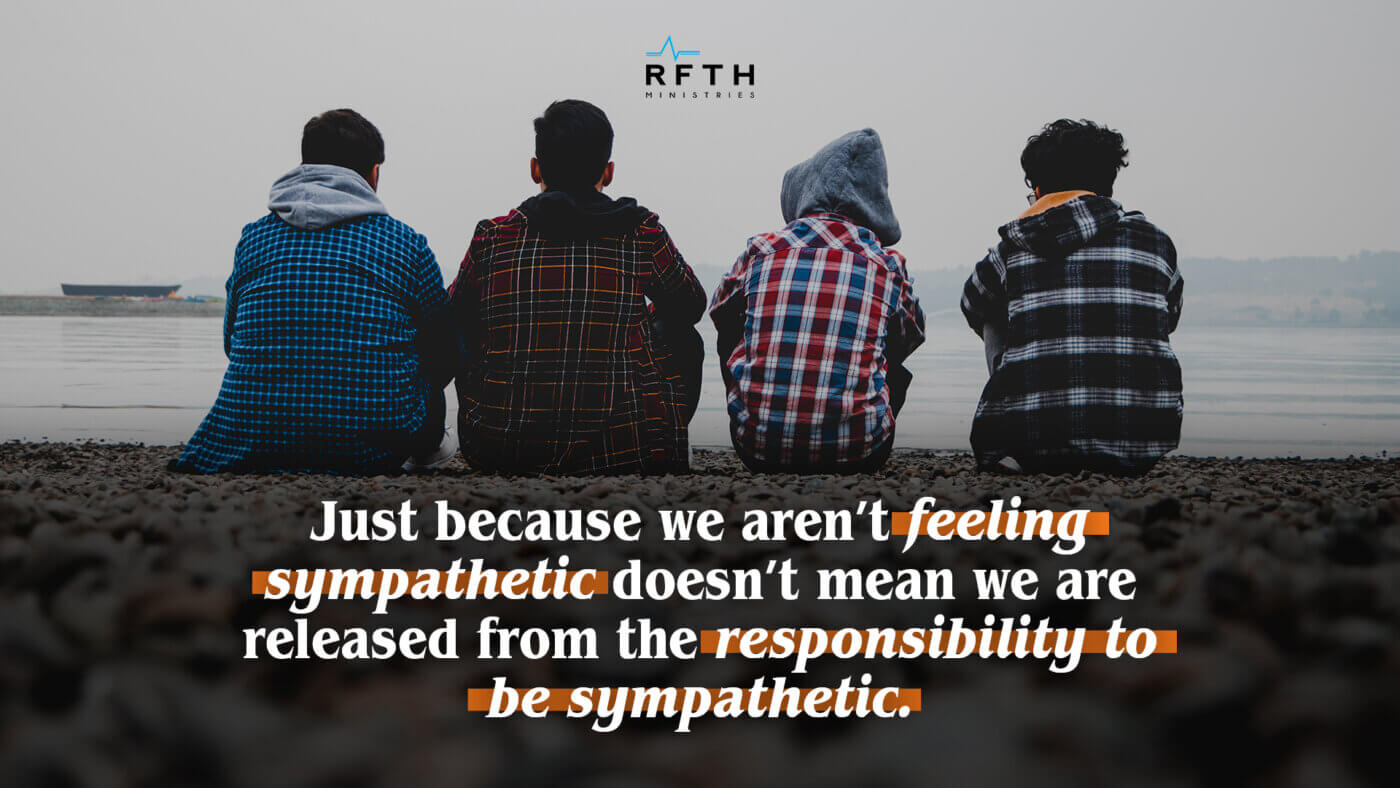
“Rejoice with those who rejoice; mourn with those who mourn.” Romans 12:15
Several years ago, our family of five went to the movies together. At the time, our kids were around five, eight, and eleven, and the movie involved a robot that became the best friend of the lead character. You see where this is going already, right?
At the end of the movie, the robot sacrifices himself for his human friend, and our family is a wreck. The movie spent the better part of two hours making us feel deeply for the machine, only to rip it out from under us at the end. We were all in tears… except the five-year-old. And his brother and sister were offended:
“Why aren’t you crying?” they asked. “Didn’t you think it was sad?”
His response was straight to the point: “Guys, it’s just a robot.”
True enough. And also a good example of the fact that some of us are naturally more sympathetic than others. But real sympathy is more than just shedding a few tears; it’s really feeling along with someone else and doing so deeply. This is one of the things we are supposed to do as believers – to feel with one another:
“Rejoice with those who rejoice; mourn with those who mourn” (Romans 12:15).
This command comes in a series of short, rapid-fire admonishments Paul gave to the church in Rome. Alongside practicing hospitality, hating what is evil, and showing zeal, we are told to feel with one another. And while some of us are more naturally disposed to following that command, surely there must be some way we can cultivate that kind of sympathy.
Here are three suggestions to do just that if you’re not feeling particularly sympathetic:
1. SLOW DOWN.
One of the reasons we don’t feel with one another is because we are moving too quickly. Our lives are a constant flow of information from every direction, and because they are, we rarely take the time to actually stop, think, and then feel what is happening to another person. So, one of the things that rob us of sympathy is our pace. We have to slow down if we want to feel.
2. STOP & ENGAGE.
To engage a person further, we have to stop and talk to them. Doing this helps you not only hear their words but see their body language and more fully embrace the level of pain or elation they are feeling. It’s harder to be unsympathetic when you’re standing close to someone. Our lack of sympathy, then, is not only a symptom of our pace; it’s a symptom of our proximity to others.
3. PRAY.
First, we can pray for the person. We can praise the Lord for what’s happening to them, or we can ask God to bring about some change in their circumstances.
Second, we can pray for our own hearts. We go to the one person we know has the power to change the human heart because He has already done it when we became Christians. Now we ask Him to soften the new heart he has given us in Christ so that we will feel more deeply for our brothers and sisters.
Just because we aren’t feeling sympathetic doesn’t mean we are released from the responsibility to be sympathetic.
After all, Jesus is sympathetic to us in all our experiences. Aren’t you glad?
Today, you’ll likely have an opportunity to model the beautiful sympathy of Jesus, that is, if you’re paying attention.
Written by Michael Kelley, Guest Contributor
To read more of Michael’s writing, check out his daily blog, “Forward Progress.” http://michaelkelley.co/






